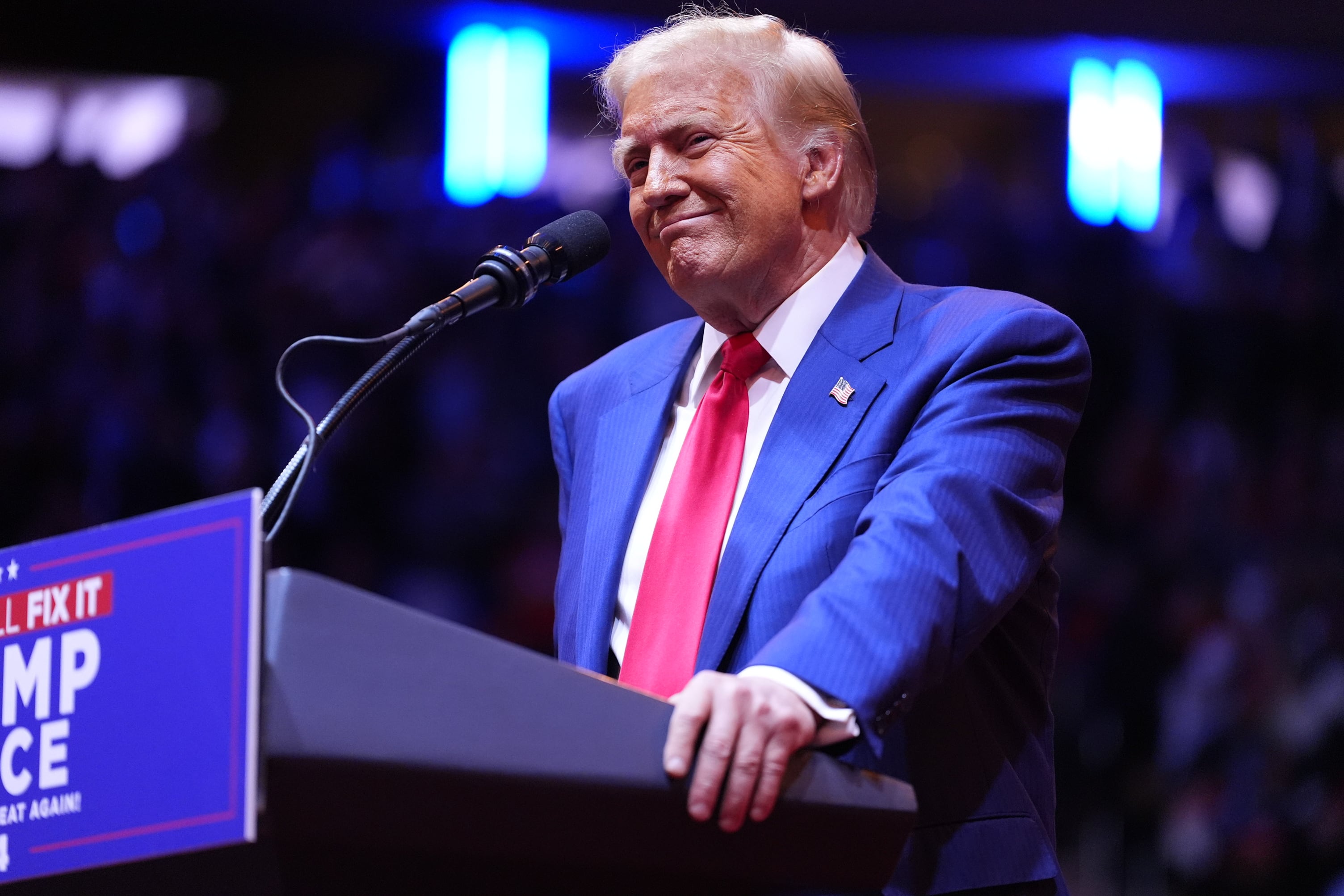Public health, explained: Sign up to receive Healthbeat’s free New York City newsletter here.
The day after Donald Trump secured a second presidential term, New York officials pledged to protect residents’ reproductive rights and access to health care — and experts braced for a likely assault on local public health systems.
“No matter who is president or what party controls Congress, this city will always stand up for the rights of women, our immigrant brothers and sisters, our LGBTQ+ community and millions of others,” New York City Mayor Eric Adams said during a press briefing Wednesday at City Hall.
On Tuesday night, New Yorkers overwhelmingly passed Proposition 1, also known as the Equal Rights Amendment, enshrining abortion rights in the state Constitution and barring discrimination based on ethnicity, age, disability, sexual orientation, gender identity, and pregnancy.
But many public health experts worry about how Trump might reshape federal health policy — and how those changes could curtail local public health initiatives. Trump has embraced Robert F. Kennedy Jr., a prominent critic of successful public health measures like the childhood vaccination schedule and the fluoridation of drinking water. Kennedy will be allowed to “go wild on health,” Trump said at a recent rally.
Trump has also indicated support for barring federal funding for gender-affirming care, reforming parts of the Affordable Care Act, and prohibiting the abortion pill mifepristone to be sent by mail, according to STAT. Meanwhile, conservative lawmakers and strategists have voiced support for narrowing the scope of the Centers for Disease Control and Prevention — prompting outcry from many of the agency’s former directors.
Under Trump, it’s likely that federal health agencies could lose power and credibility, said Dr. Peter Muennig, a professor of health policy and management at Columbia University Mailman School of Public Health.
“There’s little question that institutions and agencies will be weakened,” he said. “How severely they’re weakened is hard to say because Trump is not exactly predictable.”
In a more dystopian version of a second Trump term, Muennig said, federal agencies could stop promoting vaccinations and investing in public health measures — turning back the clock on a century’s worth of science and research that has significantly improved U.S. life expectancy.
Sharp funding cuts to federal health agencies would significantly impact local public health work, said Brett Harris, president of the New York State Public Health Association and a clinical associate professor at the University at Albany School of Public Health.
“The funding that’s available really guides what public health is able to do,” Harris said. “In the past Trump administration, there were cuts to the point where, you have the staff there, but they can’t really have an impact because the funding isn’t behind it, and then they can’t get that funding out to states and communities.”
Potential funding shortfalls could be addressed in the state budget process, which begins early next year, said Gov. Kathy Hochul, who also held a press briefing in New York City on Wednesday.
Dr. Michelle Morse, acting commissioner of the New York City Department of Health and Mental Hygiene, emphasized that her agency would continue to “promote and protect the health of all New Yorkers, regardless of who holds the Office of the President.”
“Our commitment to reducing inequities in chronic disease and Black maternal health is unwavering,” Morse said in a statement. “We will continue to expand access to abortion and support the health of immigrants and the LGBTQ+ community among other public health priorities. This will help us to lead on health equity and racial justice in New York City and beyond.”
Dr. Mitchell Katz, president and chief executive officer of NYC Health + Hospitals, the country’s largest municipal health care system, stressed that under a Trump administration, vaccine access would be protected in New York state.
“This country has a very strong tradition of state control of health issues,” he said during the City Hall briefing. “The Centers for Disease Control is advisory, so states get to determine policies around immunization.”
Still, the work of federal agencies and local health departments is often intertwined, and a White House that downplays the importance of vaccines, or spreads misinformation, could have harmful consequences for places like New York.
Dr. Bruce Y. Lee, a professor at the CUNY Graduate School of Public Health & Health Policy, emphasized that infectious diseases do not respect state borders. Local health departments also rely on the federal government for funding and health information.
“It’s unrealistic to think that any local health department can function as an island,” Lee said.
Still, restrictions at the federal level may give local health departments an opportunity to become more nimble and effective, Muennig said.
“What we need to see locally is a recognition that there needs to be radical change,” he said.
Local agencies like New York City’s Health Department will need to operate “on all four cylinders,” under the coming administration, he said. That could mean streamlining departmental operations in order to prepare for potential threats like bird flu, or working to create a system of abortion pill distribution if a nationwide abortion ban comes to pass.
“We should know now, what kinds of public health laws could we enact, what can we do that wouldn’t be challenged by the Supreme Court, what kinds of systems can we set in place?” Muennig said.
While many public health workers have experienced burnout in recent years, they remain a “strong, motivated, dedicated” workforce, said Harris, of the New York State Public Health Association.
The prospect of a second Trump term, she said, is “like a call to action to continue what we’re doing.”
New Yorkers, we want to hear from you. Have thoughts, concerns, or questions on how Trump’s presidency could impact public health in your city? Submit to our reader survey.
Eliza Fawcett is a reporter covering public health in New York City for Healthbeat. Contact Eliza at efawcett@healthbeat.org .







